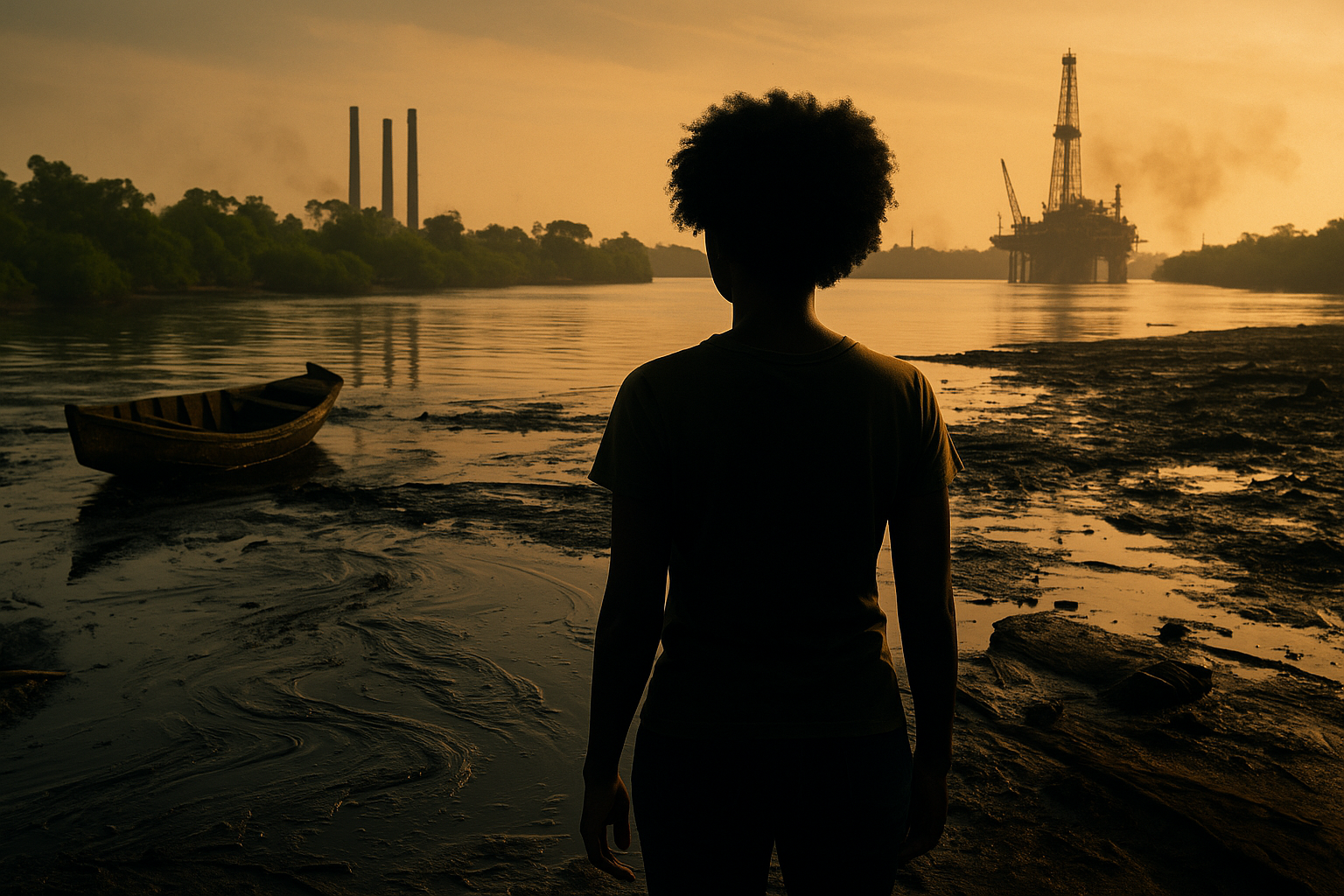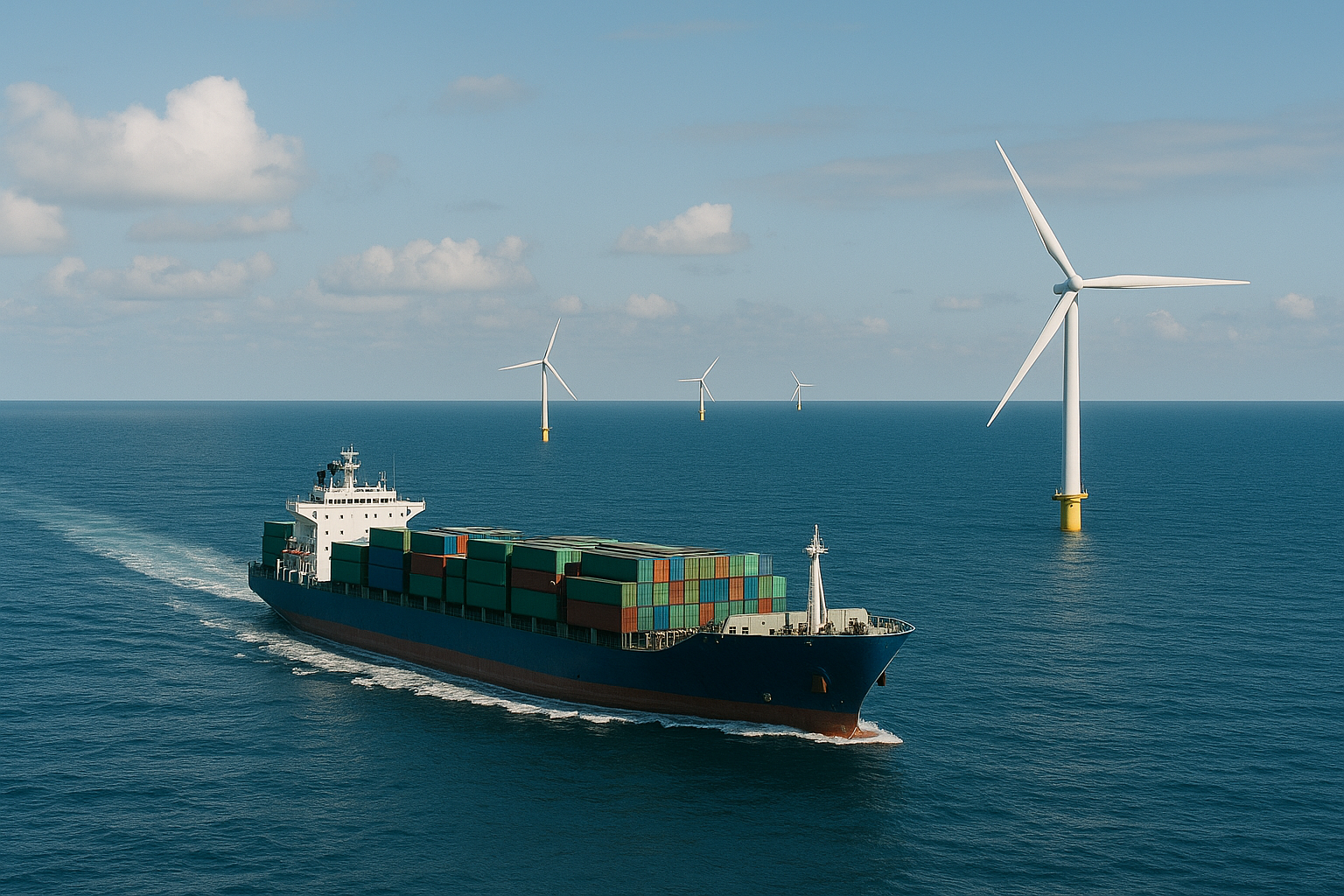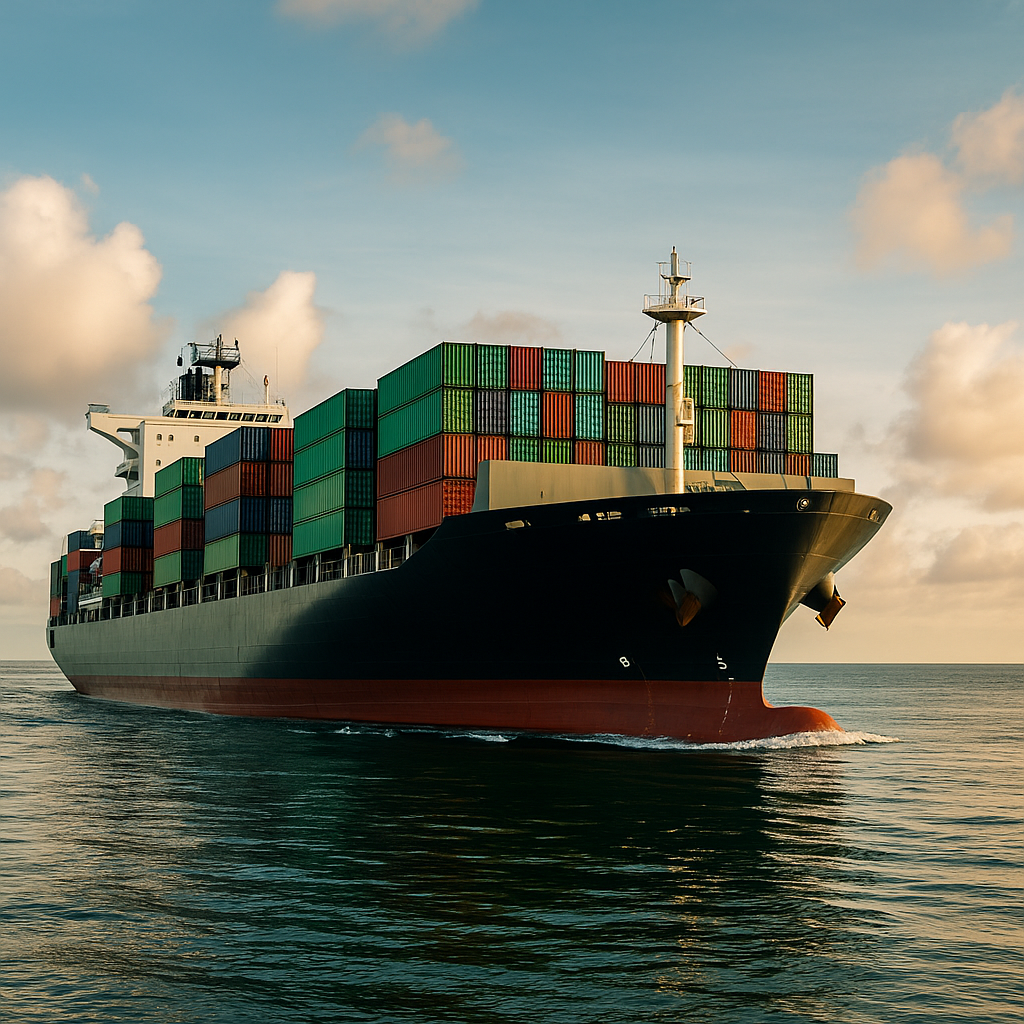Ebiere's Fight: Reclaiming the Future of the Niger Delta
A powerful story of one woman's fight against environmental degradation in the Niger Delta, highlighting the human cost of irresponsible shipping practices.
By Rita Abiodun
Maritime Sustainability Expert

Ebiere Okwu, a 52-year-old mother and grandmother, has spent her life along the waters of the Niger Delta. For decades, the river was the heart of her livelihood—its waters teeming with fish, and its fertile soil nurturing crops. But today, the river she once depended on is poisoned by oil spills, and her community is fighting to survive the destruction caused by irresponsible shipping activities.
Ebiere's story is shared by many in her community. The Niger Delta, once a source of abundant food and income, has suffered years of environmental degradation, largely driven by oil spills and waste from ships passing through the region. For Ebiere, the decline of local fisheries wasn't just a loss of income—it was an assault on her way of life.
"I used to wake up at dawn, and the river would be alive," she recalls, her voice soft but steady. "The sound of the water, the fish jumping… it was everything. It was how we lived."
But in recent years, the river became sick. Oil leaks from passing ships, combined with illegal dumping and toxic waste from oil companies, have slowly poisoned the water. Fish began to disappear, and the once-thriving ecosystem began to crumble. Ebiere's fishing business, which had supported her family for decades, began to wither.
"I had no choice but to turn to selling at the market," she explains, her weathered hands gripping the edge of her chair. "But the prices are low, and the days are hard. The river used to give us all we needed. Now, I barely have enough to get by."
Ebiere's story is not unique. Many in her village have seen their livelihoods collapse due to the irresponsible actions of the shipping industry. Oil spills, illegal dumping, and unchecked shipping practices have left the river and the land toxic. Once a thriving community of fishermen and farmers, the area is now struggling to survive, with many families forced to abandon their homes in search of new work.
"We feel forgotten," Ebiere says, looking out over the polluted waters that once sustained her family. "The oil companies continue to pollute, and nothing is done. We keep asking for help, but they don't listen. We're just here, waiting for something to change."
For years, the shipping industry has taken a heavy toll on the Niger Delta, driven by a relentless pursuit of profit at the expense of the environment and local communities. Oil tankers, cargo ships, and other vessels routinely spill oil into the waters, often bypassing regulations meant to protect vulnerable ecosystems. This pollution has led to fish die-offs, the destruction of vital wetlands, and severe soil contamination, which in turn harms the people who depend on the river for food, income, and culture.
"The river used to give us everything. Now we are left with empty nets," Ebiere says, a quiet resolve in her voice.
But despite the overwhelming challenges, Ebiere's fight isn't just about survival. It's about justice. She is part of a growing movement of women and communities in the Niger Delta demanding accountability from the shipping and oil industries. Ebiere and others like her are no longer waiting for international organizations or governments to step in—they are standing up and demanding that those responsible for the pollution clean up the mess they've created.
"We won't stay silent anymore," Ebiere declares. "This is our home, our land, and our river. If the companies won't stop polluting, we'll make them listen. We will fight for our future, for our children, and for the river."
Her story is a stark reminder that irresponsible shipping activities have far-reaching consequences for real people. Ebiere's plight calls out to the shipping industry: it's time to do better. To be more responsible. To hold yourselves accountable for the destruction you've caused.
The shipping industry holds the power to change the future of communities like Ebiere's. The question is, will they? Or will they continue to pollute, devastate, and profit at the expense of the world's most vulnerable?
Ebiere and countless others like her deserve more than just promises. They deserve action. It's time for the shipping industry to rise to the challenge, to go beyond compliance, and to restore what has been lost. For Ebiere, her family, and her community, it's no longer just about fishing and farming—it's about fighting for the future.
Related Insights

A Green Revolution on the Horizon: Why Shipping Must Do More Than Meet the IMO's Net-Zero Goals
Exploring why the maritime industry needs to exceed IMO's net-zero targets and lead global sustainability efforts.
Read more →
Why Shipping Companies Need to Go Beyond Compliance: Embrace Responsibility for a Greener Future
A compelling call for shipping companies to exceed basic compliance and lead the way in environmental responsibility and innovation.
Read more →